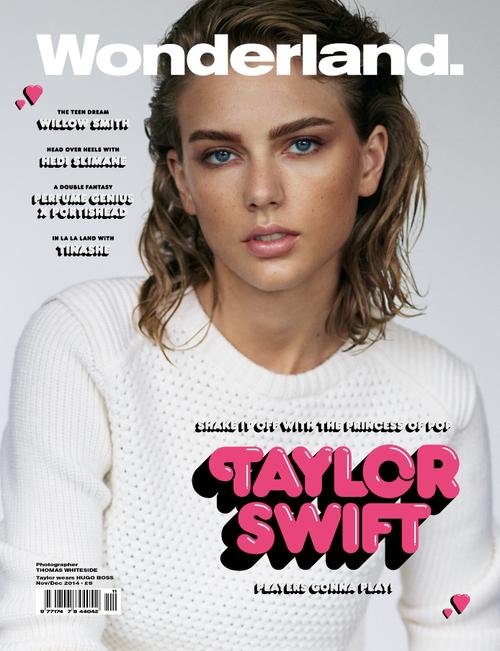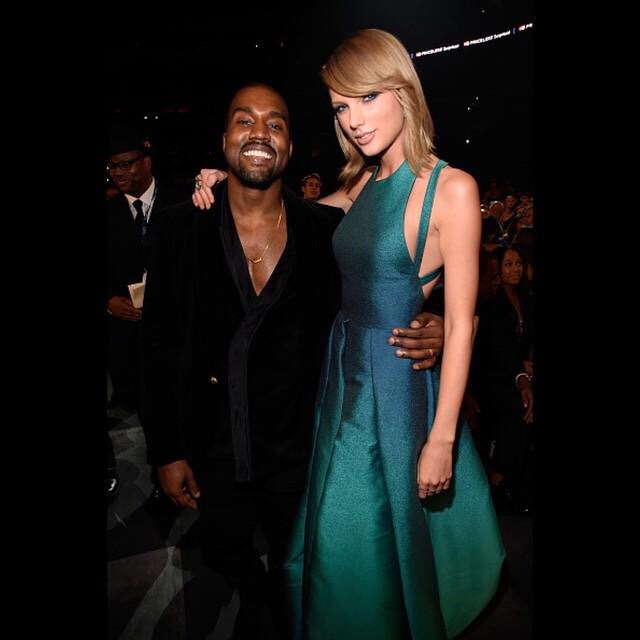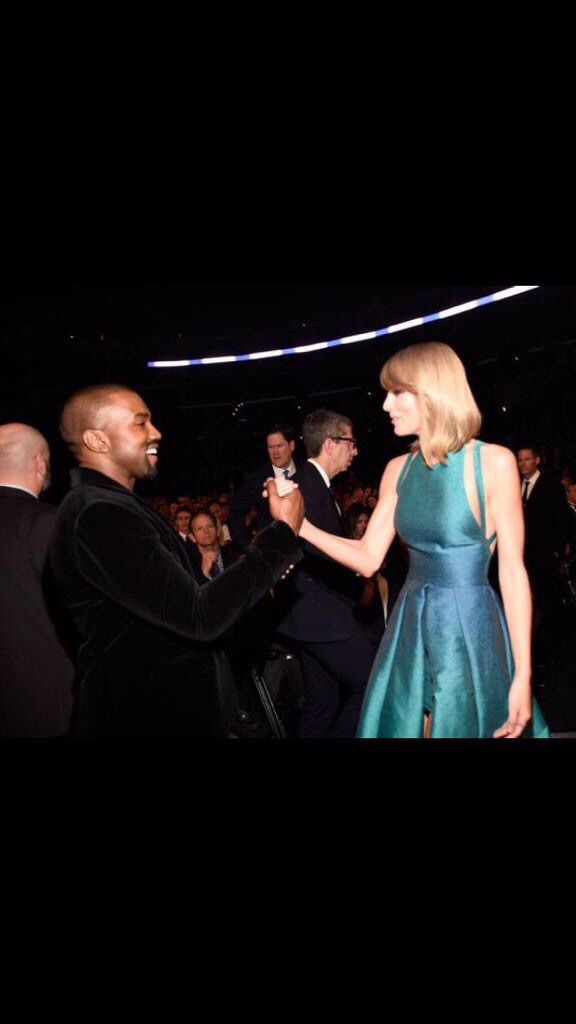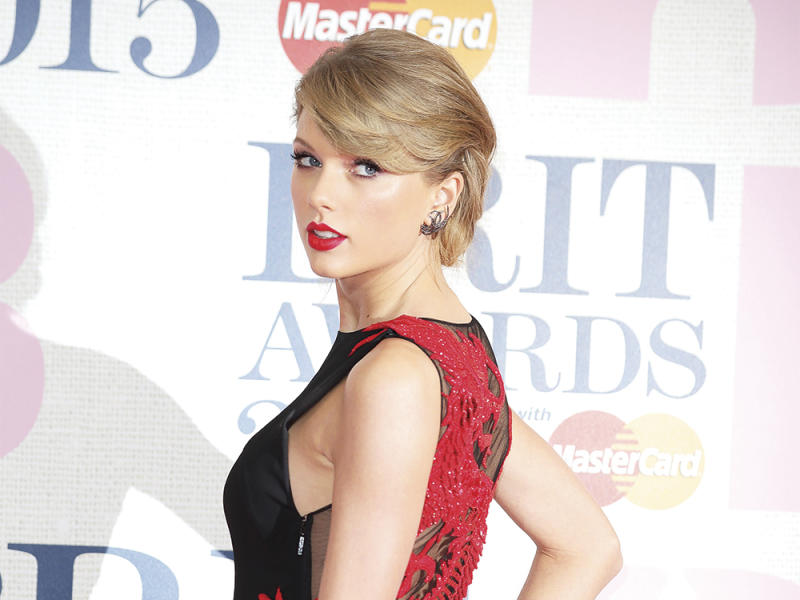Why Taylor Swift Is Nuts for Leaving Spotify
An orgy of Tayloriffic Swiftacular commentary on the release of Taylor Swift's new album, 1989, flooded the internet last week. Soon after came a second front of discussion. Swift, it was said, had broken up with Spotify.
There would be no streaming of her new album — and she removed all of her previous work from the service to boot. Was it smart? Well, we were informed, the numbers told the story. The album sold 1.2 million copies its first week out. (This was the highest any album had sold in one week in more than ten years.)
The gross on the album would be about $12 million. Spotify's payments are almost impossible to calculate given the variables of how the service works, but Swift might have gotten a few thousand dollars for every million streams on the service. It's a no-brainer — Swift was a genius. The CD lives!
Is that analysis correct? No.
First of all, readers should beware when the big, hyped story is that a big star does something big stars are supposed to do. Swift sells more records than anyone this side of Adele. All pop marketing these days is about making a splash. That's why we've seen Beyoncé and U2 go to such lengths to get our attention with their latest releases. Swift didn't have any real tricks like that up her sleeve, so she worked overtime before the release, calling attention to it, and in the end, she and her label did a good job.
Remember that Swift comes from country, with a much more traditional record-buying audience, and this album is her big crossover bid. She's a somewhat bland but sprightly star who appeals to moms and kids, genetically designed to be as ingratiating as possible. The successful marketing of such stuff shouldn’t be greeted with looks of wonder.
Now let's look at the numbers. First of all, Swift doesn't make $12 million from her record. Her record company, Big Machine, does. And the company doesn't make it either, in the end. It makes 60 or 70 cents on the dollar from iTunes. It's selling for $10 at Amazon, $14 at Walmart. Big Machine might make $8 a sale on average. That's $9 million in round figures. Now, these numbers could be larger if Swift's promotional deals with the retailers got her more money; barring that, Swift is going to make about $2 per sale.
But remember that typically the label would have given her a large cash advance against future royalties, so it's probably keeping most of the money at this point. (Remember as well that labels have a highly evolved ability to route all money that does come in into its pockets, rather than the artist's, but that's a story for another day.)
Anyway, that means Swift might be making $2.4 million off the album this week in straight artist royalties. The real comparison is not between the gross of the album versus what she might make from a streaming service like Spotify, but the difference between her Spotify income and the income from the physical and digital sales she would have lost to the service.
Let's say it's 10 percent. That's $240,000 in royalties. If 1989 totals 100 million streams on Spotify, that might only produce $200,000 in payments back to Swift — and let's remember that on paper, at least, she's splitting those with Big Machine. So let's say $100,000 versus potential lost royalties of $240,000 ….
... meaning Spotify might have cost her $150,000. That's not nothing to me and you, but in TaylorWorld, it's really not much. On Swift's last tour, she grossed an average of $1.8 million — almost as much as she's making off her new album with its spectacular sales — per show; even after expenses and administrative costs, she will have made that $200,000 differential up at about the 20-minute mark of her next appearance.
The second misleading aspect of the debate is that the decision to be on Spotify or not is not really Swift's to make. She's a big star and undoubtedly has more juice than a lot of performers, but it's Big Machine's job to maximize its own sales. The label — again, this is in crude terms — is probably making three times as much as Swift is on the CD. The differential is a lot greater; from its perspective, it makes so much more off a CD sale that its business focus is on little else. (Also, as the Times reported, a sale of the label might be in the offing, and a strong performance by the label's star performer couldn't hurt the potential sale price.)
This is where the story gets portentous and sad. As we've seen over the past 15 years, the decisions record labels make are quite often not in the best interests of their customers, their artists, or, in the end, themselves. The CD Era is long gone. Sales will go on, of course, particularly in genres like country that haven't entirely made it to the digital world yet, but will continue to drop significantly each year. (At least until the CD becomes a neo-retro accouterment in the bewhiskered hipster pad the way LPs are now.)
The iTunes Era is over as well. Few have been paying attention, but digital sales are now collapsing in unison with CD sales. Swift's 1989 sales are not a sign that this process is being reversed; she's just an outlier with a good marketing staff.
The future of the industry lies in streaming. (It's not pretty — as Thom Yorke put it, it's "the last desperate fart of a dying corpse” — but that's what it is.) And here's the rub. Any transition in a business affects different parties differently. The sad fact of the music business is that everyone's making less money than they used to, and are going to make less in the future, but no one's working to maximize whatever that long-term lower status is. The labels weren't great on making tough decisions during their go-go years, so you can imagine the fighting to get to the lifeboats that's going on behind the scenes now. (It couldn't have happened to a nicer group of people.)
So let's look at the future. Spotify has a value to its customers if it actually has all the music people want to listen to. If all the major artists pull a Swiftie on the service when their new albums come out, it significantly devalues the value of the product to consumers. ("Why should I pay this place $10 a month if Taylor Swift, Beyoncé, Kanye, and Adele aren't on it?")
In this standoff, Spotify, which is constructing the industry of the future, has the high ground; it knows what it needs to do to succeed.
The proper play even for a greedy record industry is to put all the music on the streaming services all the time and make it part of everyday life. Then they can start jacking up the fees and ad rates. (There's a line of argument that in any case the industry will ultimately suck the service dry of all its profits, so it can never succeed, but that's a story for another day as well.)
Swift has already shown herself to be a very naïve person when it comes to the music business: Her Wall Street Journal op-ed piece last summer was strikingly solipsistic and uninformed. If she supports Big Machine's decision, as she seems to be indicating, she's really hurting both other artists and herself in another way.
Why? Because we can already see where folks are going to get their music if they decide a streaming option like Spotify doesn't give them the service they want. Here's what Swift's — and Spotify's — real competition is:
That's a screenshot of just part of a Pirate Bay page dedicated to 1989 torrents. I count about 7,000 folks sharing the thing right then, a week after the album came out. (With that many seeds, downloading an album takes about 45 seconds, so you can imagine the churn.) A single page on a different BitTorrent site, Kick Ass Torrents, said that just one particular torrent of many for the album had been downloaded close to 110,000 times.
And remember that this comes in the face of what I'm sure was a strong behind-the-scenes campaign by her label to keep the thing off the illegal networks.
Spotify's per-stream payout seems small, all right, but it's a lot bigger than the Pirate Bay's.
Thus far, the only big winner is Big Machine. Long-term, Swift has screwed herself over as well. This week, she announced a world tour. Tours are, of course, where the real money is; her next one, depending on how many dates there are in the end and whether she starts jacking up her (relatively low) ticket prices, may gross $200 million or more.
I'll bet you dollars to old scratched CDs that U2's plan was to announce its next world tour as the band members basked in the glow of their big Songs of Innocence album giveaway at that now-notorious Apple announcement; the silly imbroglio that resulted may well have held those plans up.
Why?
Because U2's next tour may well gross a billion dollars. If bad PR mojo should have cost the band a one percent drop in ticket sales, that's a lot of money down the drain. (Live Nation gets mad when that happens.)
Look what's happened to Swift. The message of her tour has been muddled with this Spotify debate; even if the coverage is overwhelmingly pro-Swift (which is how it reads to me), at best, the intimation that's she's doing things not for her fans but for money clashes with her brand.
The next decision those readers are going to make is whether they should shell out $100 or $150 to see her live, or pay for their kids to do so. Their decision might put a frownie face on even the nicest pop star's tour accountant.








